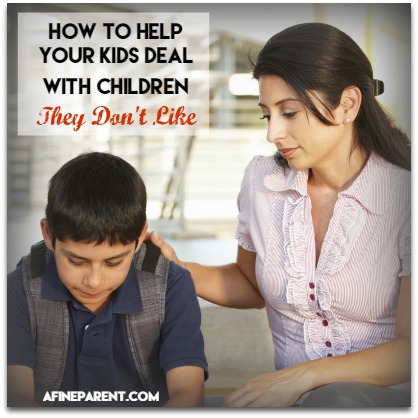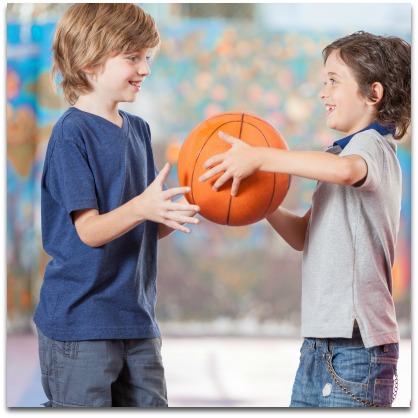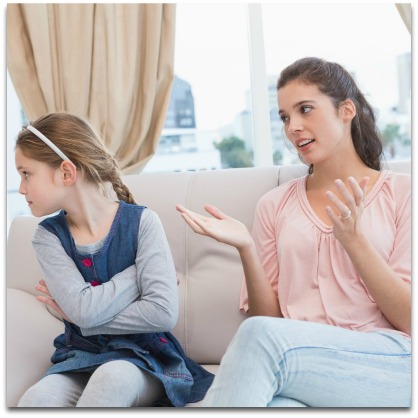 “Mom, do I really have to invite him to my party? I don’t like him!”
“Mom, do I really have to invite him to my party? I don’t like him!”
Have you ever had these awkward conversations with your child?
Yes, I’ve been there too!
Here’s the thing — not everyone we come across in our lifetime will be a peach. We won’t get along with all of them nor really enjoy being around all of them.
That however does not give us the license to be mean or rude.
Being able to deal with those who we don’t see eye-to-eye with in a healthy, respectful manner is essential to being a decent human being. And that is what I want to raise my kids to be.
Besides, research shows that good social skills – the ability to interact with all kinds of people, including those whom we may not like – is key to career success… from being able to ace an interview to securing funding for entrepreneurial ventures.
So, it is in our best interest to teach our kids how to deal with other kids they don’t like.
After some digging around, here’s what I’ve found to be a good approach –
1. Help Your Child Figure Out Why They Feel the Way They Do
 Sometimes when we don’t like people, even as adults, we know exactly why we don’t like them. Then there are other times where someone may have just ‘rubbed’ us the wrong way, and we aren’t really sure why we don’t like them.
Sometimes when we don’t like people, even as adults, we know exactly why we don’t like them. Then there are other times where someone may have just ‘rubbed’ us the wrong way, and we aren’t really sure why we don’t like them.
In reality, in those instances where someone has just rubbed us the wrong way, it is irresponsible of us as adults to not give them any further chances and just deem it as “Well, I just don’t like them.” It is actually rather immature of us.
Now, I’m not saying I’ve never done this before. Shameful as it is, I admit that I have. But do I want that for my children? Not if I can help it.
The reason is because they could easily miss out on very valuable relationships because that person made a bad first impression.
So, it is important to make sure that your child can actually name a reason as to why they do not like this other child.
If they can’t really name one, then this is a great opportunity to encourage your child to be open minded and to be a giver of second chances.
But what if they can name numerous things that they do not like about this person? Well, that is great! They are at least understanding fully what they do not like about this individual and aren’t just following a crowd or a clique.
We actually had an instance with one of our children that involved a clique. There was a little boy that was viewed as an outcast because he was extremely intelligent. A lot of the kids were mean to him.
I discovered our son was avoiding him because his friends didn’t really like him. So, we started with this very step to help him move past this and hopefully make a new friend.
We actually did what Dr. Schwager encourages parents to do when dealing with cliques which is,
“Encourage your child to be inclusive. Urge them to make other friends in their class feel valued, call the new kid in class, or get to know the child who often sits alone.”
When your children are more outgoing and don’t belong to just one group of friends, they are more likely to be more open minded when giving out second chances because they won’t fear social exclusion and being friendless for stepping out and being different.
2. Can Your Child Try to Resolve the Conflict?
 After your child has been able to figure out why they don’t like another child, then it is time to take it one step further. It is time to start trying to figure out if they can resolve the conflict that has caused these feelings.
After your child has been able to figure out why they don’t like another child, then it is time to take it one step further. It is time to start trying to figure out if they can resolve the conflict that has caused these feelings.
In our instance with our son, when we found out that he was kind of going with the crowd and not liking this child because of how smart he was, we dug a little deeper.
Unfortunately, we found there was a lot of jealousy there. This boy knew so much about certain subjects that our son really wished he did. He was jealous of how other adults would just fawn over this other child because of his knowledge.
Truthfully, this child was super intelligent, and it was something to certainly acknowledge. But I also had to explain to my son how much effort this young man had put into his studies. He didn’t just wake up one day and have all of this knowledge.
While my son was busy playing video games, this child was busy reading and studying. I let my son know that there was nothing wrong with either of those approaches, but feelings of jealousy are not healthy and if you want to be more knowledgeable than you have to be willing to put in the work to gain that knowledge.
So, when he realized that it was feelings of jealousy and peer pressure that caused him to dislike this child, we were able to discuss conflict resolution.
We began with these questions:
- What could my son do to gain the knowledge that he so desperately wanted to gain?
- What could he do to start building a bridge between himself and this other child?
- How could our son include this other child in the future?
I’m happy to say, he took these thoughts seriously and implemented the conflict-resolution solutions that we came up with the very next time he saw him.
3. Encourage Your Child to Wear a Different Pair of Shoes
 One thing I did that really seemed to get through to our son was place him in this other child’s shoes. You see, when my son was younger, he had a really hard time socially.
One thing I did that really seemed to get through to our son was place him in this other child’s shoes. You see, when my son was younger, he had a really hard time socially.
Other kids didn’t seem to really care for his personality. He was just different — always has been and probably always will be.
But when he was smaller, it really hurt his feelings. He just wanted to be accepted. But as he grew older and more confident in who he was, he became okay with it.
Well, now that he has friends, I had to remind him of how that felt when he was younger. And then I encouraged him to think about how this other child must feel.
That really softened our child’s heart towards this other boy.
It is my personal belief that being able to place ourselves in other’s situations builds compassion and empathy towards others which are important for forming deep attachments with family, friends and even strangers.
So, if you can encourage your child to try and see things through this other child’s eyes, hopefully it will help to build empathy within your child.
4. The Golden Rule
 The Golden Rule is a huge deal in my house. The world would be a completely different place if people could simply follow this one rule.
The Golden Rule is a huge deal in my house. The world would be a completely different place if people could simply follow this one rule.
If you are unfamiliar with this rule, it is simply this: Treat others as you would want to be treated.
That’s it.
I remind my boys all of the time, whether it be they are having a disagreement between themselves or a larger issue, to always treat the other person with the same respect as you would want to be treated if you were in their place.
So, the final step in helping your child deal with children that they aren’t particularly fond of is to simply treat this child with the same respect they would want to be treated with.
This doesn’t mean that this other child will be nice to them, and it doesn’t even mean that they will become great friends.
What it does mean is that your child is learning to always rise above and be the bigger person even in the most precarious of situations.
This is a piece of advice that will serve them well throughout their lives. If you encourage your child to follow this step in even as small of a decision as whether to invite a person they really don’t like to a party, you will find that your child will most likely do the right thing and make this other child feel included.
5. When All Else Fails…
 If by some chance your child still doesn’t feel comfortable inviting this other child to a party or any other type of event, what then?
If by some chance your child still doesn’t feel comfortable inviting this other child to a party or any other type of event, what then?
I personally wouldn’t encourage forcing them to do the “right” thing. This is your child’s party after all… by forcing your opinion on them, you will likely take away some the fun.
Additionally, it could result in unnecessary buildup of resentment which could come out in unpleasant ways. If your child really doesn’t want the other child there, you don’t want to expose your child or any other child to an opportunity that might put either one at risk of be treated in a less than desirable manner.
And lastly, by forcing your will, you are missing an important teaching (and learning!) opportunity.
So instead, look for options to turn this into an exercise where your child comes up with more sensitive and creative solutions.
For instance:
- Instead of inviting all classmates and excluding just one child, perhaps your child can have a smaller party with only a few of his close friends? (If this is the option your child chooses, make sure that he understands not to discuss the party in front of others… not with the intention of keeping a secret, but simply to avoid uncomfortable conversations.)
- Instead of a party where your child may be required to interact with this other child whom he doesn’t like, can you pick another option to celebrate where the interaction can be limited (ex. go to a movie) and invite the other child anyway?
- If your child is a boy and the other child is a girl, you can make the party boys only (and vice versa).
One of the primary goals of positive parenting is to guide your child through difficult situations. Instead of forcing your will that the other child MUST be invited (authoritarian parenting) or by letting your child do as he pleases and let him exclude just one child (permissive parenting), when you sit your child down and look through the options with them, you can open up wonderful learning/teaching opportunities.
In this particular case, a lesson in conflict resolution or empathy may not be what your child needs at the moment, but if they learn to be sensitive about handling difficult situations, isn’t that good enough?
The 2-Minute Action Plan for Fine Parents
So, you find yourself in one of these precarious parental situations where your child really doesn’t want a certain child to be involved in a social event:
- Does your child understand why they feel the way they feel about this other child?
- Do you fully understand the situation and your child’s feelings about the situation?
- Is there any way to resolve the conflict between the two children? Let your child take the lead in this situation but be there to help them walk through the conflict resolution thought process.
- Has your child ‘tried on the other child’s shoes’?
- Would they want to be treated in the same fashion if they were in the other child’s position?
- If all else fails, how can you still handle it sensitively and respectfully?
The Ongoing Action Plan for Fine Parents
Conflicts, resulting in complicated social situations, is a natural part of life. It will arise over and over again. Understanding how to handle it can make all of the difference. So, resolve to handle the situation calmly the next time it occurs.
If your plan A does not work (in this case, resolving the conflict), then switch to plan B (in this case, trying to respond with empathy). If plan B does not work, switch to plan C (in this case, brainstorming for sensitive and respectful ways to handle the situation).
Commit to going through as many plans as required until you and your kids learn how to handle things. This is what parting is all about, after all.


Well written article! Thank you for sharing it.
Really helpful and well written .
Hi Daphne!
Thank you for your encouraging words! And I am so glad you found it helpful!!
You had me,until:
If your child is a boy and the other child is a girl, you can make the party boy-themed (ex. nerf party, or dungeons and dragons party) and just invite the boys (if the situation is reversed, can you go for a princess party or a spa-party.
Really? Is that what a fine parent would do? Perpetrate the incorrect social norms that the girls can’t play with the boys and vice versa?
Hi Kelly,
I can see your concern but that isn’t the idea to implicate that boys and girls can’t or shouldn’t play together. The idea is to simply host a party that might be less desirable to a child of the opposite sex so as not to make them intentionally feel excluded. And the themes provided were just examples. You could host a sleepover which is a common occurance where children of the opposite sex don’t ‘usually’ blend. You don’t have to go with some of the traditional themes if you feel like it would send the wrong message to your child. Or you could go with one of the other options provided if you feel like this option just isn’t a good fit for you. That is totally up to you.
Thank you for taking the time to read and share your thoughts! It is very much appreciated!
Hi, Kelly. As Jennifer mentioned, the intention here isn’t to perpetrate the idea that girls and boys should not play together. In fact, that angle didn’t even occur to me until I read your comment. What Jennifer and I were aiming for is to provide examples of ways to limit the party to only a few kids so one child out of the lot is not picked out for exclusion.
That said, I appreciate that you took the time to leave me a comment. As an editor it’s comments like this that help me to learn and grow and start looking at a new draft from more varied angles!
I appreciated this very well thought out and informative article. One thing- it is authoritarian parenting that is the bossy/ force one. Authoritative parenting allows children freedom to choose within healthy boundaries the parents set.
Thank you again for taking the time to write and share this article.
-Heidi
Good catch, Heidi. Thank you so much for taking the time to let me know. All fixed now.
And thanks for the kind words about the article too 🙂
You’re welcome Sumitha, thank you again for taking the time to do what you do to share this important information with others. ?
Hey Heidi!
Thank you for your encouraging words. And I’m so glad you found it informative. 🙂
You’re welcome Jennifer. Thank you again for taking the time to share your experience with others. ?